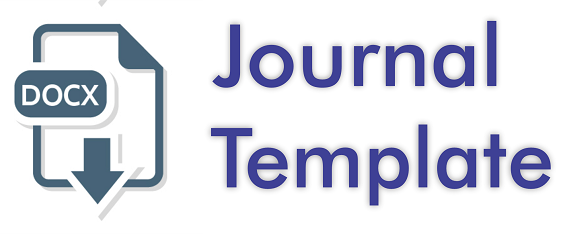Pengaruh Pemahaman Agama Islam Terhadap Produktivitas Masyarakat di Kecamatan Kuranji Kota Padang
DOI:
https://doi.org/10.59107/ri.v1i1.10Keywords:
Produktivitas, Pemahaman, Agama Islam, MasyarakatAbstract
This type of research is field research with a source of field survey data, namely asking PKH beneficiaries to fill the research instruments. This data is processed based on quantitative analysis looking for correlation values between two variables using the SPSS 16.0 statistical application. After processing the data, the results of the correlation of 0.516 are greater than the correlation value of the table (r-table), the significance level of 5% is 0.1996. In accordance with the hypothesis that r-count is greater than r-table, H1 is accepted, namely there is a significant relationship between the level of understanding of Islam to the productivity of the community. The results of this study clearly illustrated that the level of understanding of Islam influenced the productivity of the people in the Kuranji Subdistrict, Padang City. In accordance with the doctrine and theory of religion that religion has influences that are interconnected with economic behavior, especially in terms of the productivity of society. The low level of understanding of Islam will also be low productivity of the community and vice versa. although between these two variables has a weak relationship but has an influence relationship between the two.
Downloads
References
Bambang Prasetyo and Jannah, L.M. (2014) Metode Penelitian Kuantitatif,. Bandung: Bandungpers.
BPS (2022) Kota Padang Dalam Angka 2022, Badan Pusat Statistik.
Husein Umar (1997) Riset Sumber Daya Manusia. Jakarta: Gramedia Pustaka Utama.
Jalaluddin (1996) Psikologi Agama. Jakarta: Rajawali Press.
Madjid, N. (1994) Pintu-Pintu Menuju Tuhan. Jakarta: Paramadina.
Mohamad, R. and Mustofa, M. (2014) ‘Pengaruh Tingkat Pemahaman Agama Terhadap Perilaku Bisnis Pedagang Pasar Minggu Telaga Kabupaten Gorontalo’, Al-Mizan, 10(1), pp. 1–16.
Rakhmawati, I. (2016) ‘Dampak Produktifitas Kerja Islam bagi Kinerja Karyawan’, Jurnal Iqtishadia, 9(1).
Sedarmayanti (2009) Sumber Daya Manusia dan Produktivitas Kerja. Bandung: Mandar Maju.
Syari’ah, F.R.X.E. dan K. (2016) ‘Akseleras Pengembangan Industri Keuangan Non-Bank (IKNB) Syari’ah yang inovatif, Inklusif dan Konstributif dalam Pembangunan Ekonomi yang Berkelanjutan tanggal 9-10 Juni 2016’, in. Padang: IAIN Imam Bonjol Padang.
Umar, H. (2001) Strategic management in action. Gramedia Pustaka Utama.
Weber, M. (2005) Protestant Ethic and the Spirit of Capitalism (Routledge classics). Routledge.
Downloads
Published
Issue
Section
License
Copyright (c) 2023 RISALAH IQTISADIYAH: Journal of Sharia Economics

This work is licensed under a Creative Commons Attribution 4.0 International License.
License
The non-commercial use of the article will be governed by the Creative Commons Attribution license as currently displayed on http://creativecommons.org/licenses/by/4.0/. This licence allows the user to distribute, remix, tweak, and build upon the licensed work, including for commercial purposes, as long as the original author is credited.
Author’s Warranties
The author warrants that the article is original, written by stated author/s, has not been published before, contains no unlawful statements, does not infringe the rights of others, is subject to copyright that is vested exclusively in the author and free of any third party rights, and that any necessary written permissions to quote from other sources have been obtained by the author/s.
User Rights
Under the Creative Commons Attribution license, the author(s) and users are free to share (copy, distribute and transmit the contribution).
Rights of Authors
Authors retain the following rights:
- copyright, and other proprietary rights relating to the article, such as patent rights,
- the right to use the substance of the article in future own works, including lectures and books,
- the right to reproduce the article for own purposes, provided the copies are not offered for sale,
- the right to self-archive the article.
Co-Authorship
If the article was prepared jointly with other authors, the signatory of this form warrants that he/she has been authorized by all co-authors to sign this agreement on their behalf, and agrees to inform his/her co-authors of the terms of this agreement.
Termination
This agreement can be terminated by the author or RISALAH IQTISADIYAH: JOURNAL OF SHARIA ECONOMICS upon two months’ notice where the other party has materially breached this agreement and failed to remedy such breach within a month of being given the terminating party’s notice requesting such breach to be remedied. No breach or violation of this agreement will cause this agreement or any license granted in it to terminate automatically or affect the definition of RISALAH IQTISADIYAH: JOURNAL OF SHARIA ECONOMICS.
Royalties
This agreement entitles the author to no royalties or other fees. To such extent as legally permissible, the author waives his or her right to collect royalties relative to the article in respect of any use of the article by RISALAH IQTISADIYAH: JOURNAL OF SHARIA ECONOMICS or its sublicensee.
Miscellaneous
RISALAH IQTISADIYAH: JOURNAL OF SHARIA ECONOMICS will publish the article (or have it published) in the Journal, if the article’s editorial process is successfully completed and RISALAH IQTISADIYAH: JOURNAL OF SHARIA ECONOMICS or its sublicensee has become obligated to have the article published. RISALAH IQTISADIYAH: JOURNAL OF SHARIA ECONOMICS may conform the article to a style of punctuation, spelling, capitalization and usage that it deems appropriate. The author acknowledges that the article may be published so that it will be publicly accessible and such access will be free of charge for the readers. RISALAH IQTISADIYAH: JOURNAL OF SHARIA ECONOMICS will be allowed to sublicense the rights that are licensed to it under this agreement.



.png)
.png)






